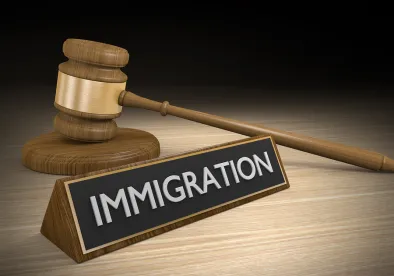International Employment
Earlier this week, the Supreme Court issued a ruling staying certain parts of the injunctions entered by the Fourth and Ninth Circuit Courts of Appeal against Executive Order No. 13780, the so-called “travel ban” Executive Order (the “Order”), and the State Department issued clarifying guidance last night. The effect of the Supreme Court ruling is to allow implementation of the Order to move forward with respect to foreign nationals from Iran, Libya, Somalia, Sudan, Syria, and Yemen (the “Restricted Countries”) who do not have “bona fide relationships” with persons or entities in the United States. As we have previously advised, U.S. employers who employ foreign nationals from the Restricted Countries should carefully consider whether international travel for such employees is necessary; if so, such employees should carry extensive documentation reflecting his or her ties with the U.S. employer to establish a “bona fide relationship.”
Background
The injunctions had prevented the Trump Administration from enforcing the provision of the Order that temporarily suspended entry into the United States of certain nationals from the Restricted Countries. The Ninth Circuit’s injunction had also enjoined enforcement of the Order’s provisions temporarily suspending the Refugee Admissions Program and capping the annual number of refugees at 50,000 for fiscal year 2017.
The Supreme Court’s decision partially reinstated those provisions, but only as to foreign nationals without ties to persons or entities in the United States. For foreign nationals who have “bona fide relationships” with persons or entities in the United States, the injunctions remain in effect and the Order cannot be enforced against them. And the Order cannot be enforced against refugees with bona fide ties to the United States, even if this results in numbers exceeding the 50,000-person annual cap on refugees for fiscal year 2017.
Bona Fide Relationships
The State Department issued new guidelines last night to American embassies and consulates providing further clarification on what types of relationships are “bona fide.” According to the guidelines, a “close family” relationship is bona fide, and “close family” is defined as a parent, parent-in-law, spouse, child, adult son or daughter, son-in-law or daughter-in-law, and sibling (whole or half). This category also includes step relationships. The guidelines also provide that “close family” does not include grandparents, grandchildren, aunts, uncles, nieces, nephews, cousins, brothers-in-law, sisters-in-law, fiancés, and other extended family members.
Consistent with the Supreme Court’s decision, the guidance also specifies that bona fide relationships with U.S. entities must be formal, documented, and formed in the ordinary course, rather than for the purpose of evading the Order. The guidance notes that hotel reservations do not constitute bona fide relationships with a U.S. entity for purposes of the Order. So, for example, employees of U.S. companies, students accepted to study at American universities, foreign workers who have accepted employment in the United States, and lecturers invited to address American audiences will likely not be barred from entry, even if they are from one of the Restricted Countries, so long as they hold a valid visa or green card. The Supreme Court decision noted that relationships formed specifically for the purpose of evading inclusion in the travel ban do not qualify as “bona fide” relationships, and the guidelines support this exclusion.
Looking Ahead
The Supreme Court’s decision is a ruling on the stay of the injunction only, not a ruling on the merits of the challenges to the Order itself. The Court has also granted certiorari in the underlying appeals and is scheduled to hear oral argument on the merits of the Order during the October 2017 term, after which more changes are possible. It is also possible that parts of the appeal may become moot—for example, because of time limits for enforcement included in the original Order. In addition, the State Department Guidance indicates that consular officers will be responsible for determining whether foreign nationals have bona fide ties with the United States on a case-by-case basis, which could lead to inconsistency in enforcement.
An employer in the U.S. that employs foreign nationals from one of the Restricted Countries should review whether any such employees are scheduled for international work travel. Such foreign nationals should only be sent on international travel assignments if absolutely necessary, and the employee should carry documentation reflecting his or her relationship with the U.S. employer. Employers should also monitor the immigration status of their foreign national employees from the Restricted Countries to ensure that employees do not fall out of status while Supreme Court review of the Order is pending.






 />i
/>i
